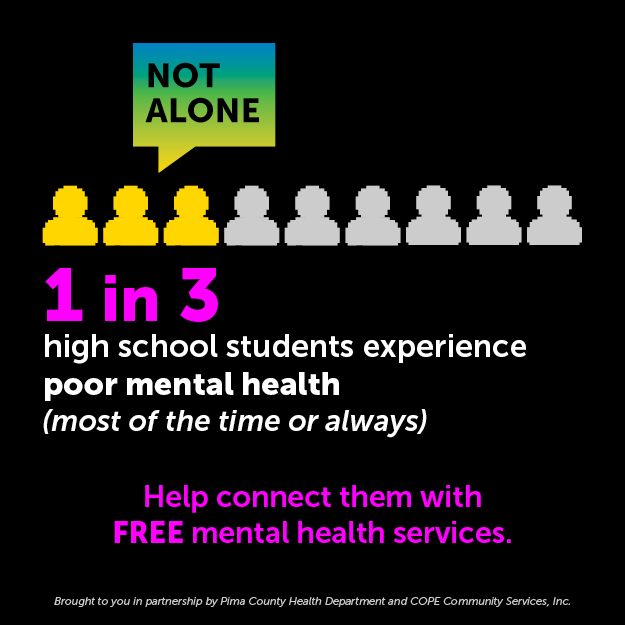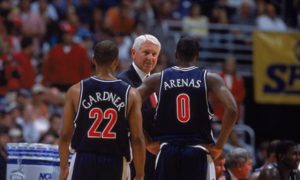Arizona’s three-game series with BYU, starting in 2016 with a game at University of Phoenix Stadium in Glendale, is a step in the right direction toward strengthening the Wildcats’ weak future schedules.
The days of playing non-conference opponents such as Michigan, Notre Dame, Ohio State, LSU and Oklahoma are a thing of the past. Arizona’s future schedules, including the upcoming 2013 season, are littered with the likes of NAU, UNLV, Texas-San Antonio, Nevada, Grambling State and Hawaii.
BYU is not in the upper-echelon of college football programs, but it has a name value with its traditional success. The Cougars also have a strong Mormon following in the region. Although the game will be played in Arizona in 2016, BYU will have as many, if not more, Arizona fans in the 63,400-seat stadium.
The trend of scheduling weaker non-conference opponents is a residual effect of Arizona’s downtrodden seasons during and after the failed John Mackovic experiment from 2001-2003. Larry Smith and Dick Tomey were not hesitant to play against quality non-conference programs.
Smith coached Arizona teams against Notre Dame, Iowa, LSU and SMU (when it was a top 10 program). Tomey coached against Oklahoma, nationally-ranked Illinois teams, Ohio State, Miami, Penn State and Iowa. Some of Arizona’s most memorable victories — or games in which the Wildcats came up short — involved these high-caliber opponents during the regular season (observe the accompanying video of Arizona’s win at Notre Dame in 1982 and Tucson’s response when the Wildcats returned home).

Arizona coach Rich Rodriguez should boost the image of the program by scheduling tougher competition (YouTube)
LSU pounded Mackovic’s Arizona team 59-13 in 2003 at Arizona Stadium. After Mike Stoops’ team lost to the Tigers 45-3 in Baton Rouge in 2006 — his third season after Mackovic was fired — Stoops said Arizona needed to lighten its non-conference schedule because of the state of the program.
“I’m not in favor of scheduling games like this,” Stoops told reporters. “It’s ridiculous.”
Anthony Gimino of TucsonCitizen.com wrote at the time: “Stoops was at Bill Snyder’s knee when Kansas State was transformed from laughingstock to Top 25 timber. The frequent scheduling of sure-thing victories helps get things rolling.”
Kansas State traditionally has scheduled weak non-conference opponents under Snyder. Arizona took a similar path under Stoops. Now Rich Rodriguez and athletic director Greg Byrne are at a point where they must decide whether to strengthen the schedule or line up cupcakes.
After the 2006 loss to LSU, Stoops scheduled a home-and-home series with Iowa and Oklahoma State. Although those programs are competitive — and they were ranked in the Top 10 when the Wildcats played them — they are not the most prestigious of the Big Ten and Big 12. The other non-conference opponents from 2007 until Stoops was fired in 2011: BYU, NAU (three times), New Mexico (twice), Idaho, Toledo (twice), Central Michigan, The Citadel and Louisiana-Lafayette.
The new college football championship format, which starts in 2014, factors in strength of schedule as one of the elements for teams to make the four-team bracket. A selection committee will rank the teams to play in the playoff, giving all the Football Bowl Subdivision teams an equal opportunity to participate. Among the factors the committee will value are win-loss record, strength of schedule, head-to-head results, and whether a team is a conference champion.
|
Lute Olson always scheduled top-notch non-conference opponents to boost the Wildcats’ RPI for a better NCAA tournament seeding. The fearless scheduling also kept the UA off the tournament bubble when it happened to lose eight or nine regular-season games.
Sean Miller’s non-conference schedules have not been as robust, but Miller has made moves in the right direction adding Florida the last two seasons and Michigan, starting next season in Ann Arbor. The Wolverines, who lost in the NCAA title game Monday to Louisville, play at McKale Center in 2014-15. |
Rodriguez coached against No. 18 Oklahoma State in his first season last year. BYU is the best non-conference opponent ahead for Rodriguez as it stands right now over the next eight seasons.
The Wildcats have spots to fill in their schedules from 2015-2020. They have one spot to fill in 2015, 2016, 2018 and 2010. They have two spots to fill in 2017 and 2019.
Byrne and Rodriguez would be wise to fill some of those openings against opponents that will make the Arizona program stronger in stature. Part of Olson’s scheduling plan was scheduling games that merited a national television broadcast to boost the image nationally of the program. Rodriguez has the same opportunity with the football program.
Obviously, Rodriguez should not overload the schedule with powerhouses, but it is a must to fill some of the holes with quality teams from the SEC, Big Ten and Big 12. The key is competing against the likes of these programs, unlike what Arizona fans witnessed against LSU and Penn State the past. That can set the program back again.
Judging from Rodriguez’s over-achieving effort last season with Arizona and his name value, the Wildcats should not worry about embarrassing losses. The football program should be concerned more about strengthening its image with a better non-conference schedule. What’s ahead in the next eight years, including set schedules over the next two seasons, is as daunting as Candy Land.
Arizona’s non-conference opponents over the next eight years:
2013
NAU, at UNLV, Texas-San Antonio
2014
UNLV, at Texas-San Antonio, Nevada
2015
Texas-San Antonio, at Nevada
2016
Grambling State, BYU (Glendale)
2017
UTEP (site TBA)
2018
BYU, UTEP (site TBA)
2019
at Hawaii
2020
Hawaii, at BYU
Site publisher, writer and editor Javier Morales is a former Arizona Press Club award winner
[rps-paypal]
|
|






























